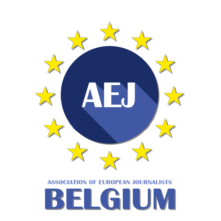By Miquel Sánchez
Hungary’s recent call for more flexibility and room for interpretation in implementing the European Media Freedom Act (EMFA) has raised concerns among press freedom advocates in Europe and beyond. During negotiations by EU diplomats to agree on the Council’s position on the EMFA, Hungary argued that differences in criminal procedure systems between member states require a more nuanced approach and pointed out that a directive or a recommendation would be more appropriate than a regulation. Critics warn that such a move could undermine the very essence of media freedom and pave the way for censorship and government control of the press.

Article 4 of the European Media Freedom Act is a crucial provision that aims to protect journalists and their sources from undue interference by public authorities. It guarantees the right to freedom of expression and information, which are fundamental pillars of any democratic society. However, Hungary’s position on Article 4 is understandable given its unique legal system, which differs significantly from other member states.
The country’s criminal procedure code, for instance, allows for pre-trial detention for up to three years, which is longer than what is permitted in most EU countries. This difference in legal frameworks could make it difficult for Hungary to implement Article 4 without compromising its own legal system.
As a result, Hungary has called for more flexibility and room for interpretation in implementing Article 4. The country argues that such flexibility would enable it to protect journalists and their sources while also upholding its own legal standards. This request has also sparked a broader debate about the need for harmonisation of criminal procedure systems across the EU to ensure consistent implementation of Article 4.
Márta Pardavi, co-chair of the Hungarian Helsinki Committee, a human rights organisation, is vocal about Hungary’s stance on media freedom. In an interview with Legal Dialogue, she stated that the Hungarian government uses criminal law as a tool to intimidate journalists and media outlets that are critical of its policies.
The Hungarian government, however, has defended its position on Article 4. In a statement to Reuters, a spokesperson for the government said that Hungary fully supports the principles of media freedom and pluralism enshrined in the European Media Freedom Act. The spokesperson also emphasised that criminal sanctions are only used in cases where there is a clear violation of the law.
Despite these assurances, many remain sceptical about Hungary’s commitment to media freedom.
The country has been ranked 89th out of 180 countries in the World Press Freedom Index by Reporters Without Borders, indicating a significant decline in press freedom over the past decade.
Meanwhile, according to internal documents seen by AEJ Belgium, Hungary also takes a stand against the European Board for Media Services to be established by EMFA:
“The right of opinion of the European Board for Media Services to be established by EMFA violates the competence of the member state authorities,” reads an internal document, which feeds the discussion within the council.
The European Board for Media Services (introduced in Article 1 of the EMFA regulation) aims to protect and promote media freedom across Europe. This board will be responsible for ensuring that media services in Europe adhere to the highest standards of journalistic ethics and professionalism. It will also work to safeguard the independence of media outlets from political interference and ensure that journalists are free to report on issues of public interest without fear of reprisal.
The establishment of this board represents a commitment by European governments to uphold the fundamental right to freedom of expression and information, which is enshrined in the European Convention on Human Rights.
However, Hungary’s media environment is dominated by outlets that are either owned or controlled by allies of prime minister Viktor Orban, who has been in power since 2010. This has led to accusations of censorship and self-censorship, as well as concerns about the independence of the media. As such, it has been reluctant to support any measures that could be seen as interfering with its control over the country’s media landscape.
In conclusion, Hungary’s position on Article 4 of the EMFA highlights challenges that arise when implementing such legislation in a diverse and complex legal landscape. The differences in criminal procedure systems among member states make it difficult to apply a “one-size-fits-all” approach, and Hungary’s request for more flexibility and room for interpretation is understandable.
Nevertheless, it is important to ensure that any deviation from the standard set by Article 4 does not compromise the fundamental principles of media freedom and the protection of journalists. A broad majority approved the Council’s negotiating mandate in the so-called COREPER on 21 June, and the Council Presidency is now mandated to enter into negotiations with the European Parliament once it has established its position on the EMFA Regulation. The aim is to conclude the inter-institutional negotiations on the EMFA before the next European Parliament elections in June 2024.
